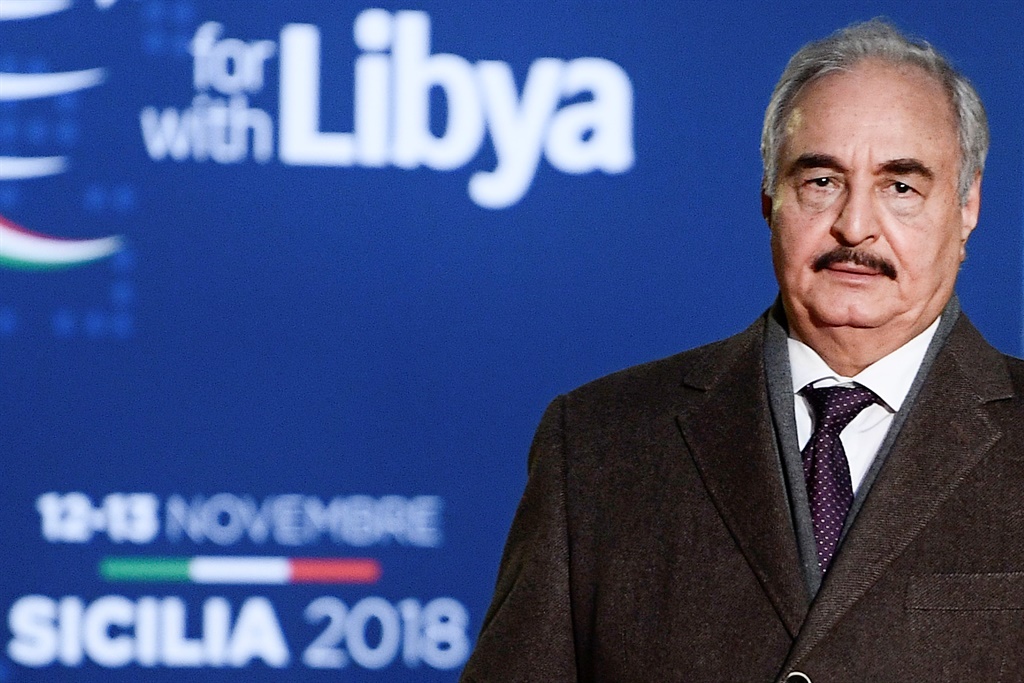

Libyan strongman Khalifa Haftar left Moscow on Tuesday without signing a ceasefire agreement aimed at ending nine months of fighting, leaving the future of a fragile truce uncertain.
The commander’s abrupt departure in the early hours of Tuesday was a setback for an international diplomatic push in recent days, though Moscow insisted it would continue mediation efforts.
Haftar and his allies were in Moscow on Monday for talks with the UN-recognised government headed by Fayez al-Sarraj and based in Tripoli.
Sarraj’s government has been under attack since last April from forces loyal to Haftar, who is based in the east of the oil-rich North African country with his own loyalist politicians.
The two sides agreed to a ceasefire brokered by Russia and Turkey that took effect at the weekend and were in Moscow to sign a long-term agreement.
MUST READ | Libyan rivals to sign ceasefire deal in Moscow
The talks raised hopes of an end to the latest fighting to wrack Libya since a 2011 NATO-backed uprising killed longtime dictator Moamer Kadhafi.
But after seven hours of negotiations, only Sarraj had signed on to the agreement and Russian officials confirmed to AFP that Haftar’s delegation had left without signing the deal.
“We will pursue our efforts in this direction. For now, a definitive result has not been achieved,” Russian Foreign Minister Sergei Lavrov said at a press conference in Sri Lanka.
ALSO READ | Foreign meddling in Libya raises ire of UN special envoy: ‘Libyans have suffered enough’
Russia, European powers and Libya’s neighbours “are working in the same vein and motivating all Libyan sides to agree rather than continue sorting things out by force”, Lavrov said.
Russian state news agency RIA Novosti quoted a source in Haftar’s stronghold Benghazi as saying he did not sign because the agreement did not spell out a timeline for disbanding groups allied with Sarraj’s Government of National Accord (GNA).
Opposing sides
Since the start of the offensive against Tripoli, more than 280 civilians and about 2 000 fighters have been killed and 146 000 Libyans displaced, according to the United Nations.
Russian President Vladimir Putin and Turkish President Recep Tayyip Erdogan made a joint call for a ceasefire, which started at midnight Sunday and was welcomed by the United Nations.
The leaders of Turkey and France on Monday called for a more permanent truce which would pave the way for a political process, while Germany was preparing a summit on Libya this month.
RELATED | Trump warns Turkey against ‘interference’ after Turkish parliament votes to send troops to Libya
Putin late on Monday discussed the talks in Moscow with German Chancellor Angela Merkel, the Kremlin said, following her visit to Moscow Saturday.
Turkey and Russia’s diplomatic initiative came despite the countries being seen as supporting opposing sides.
